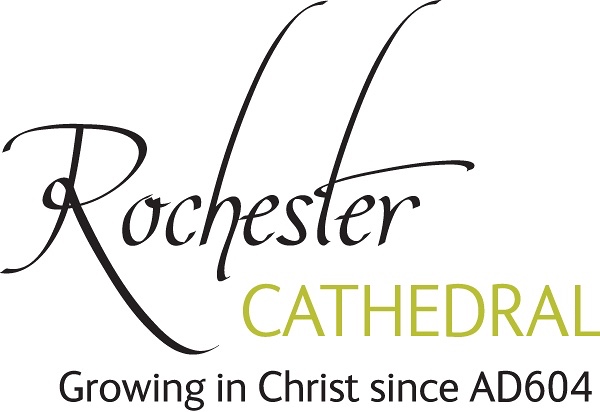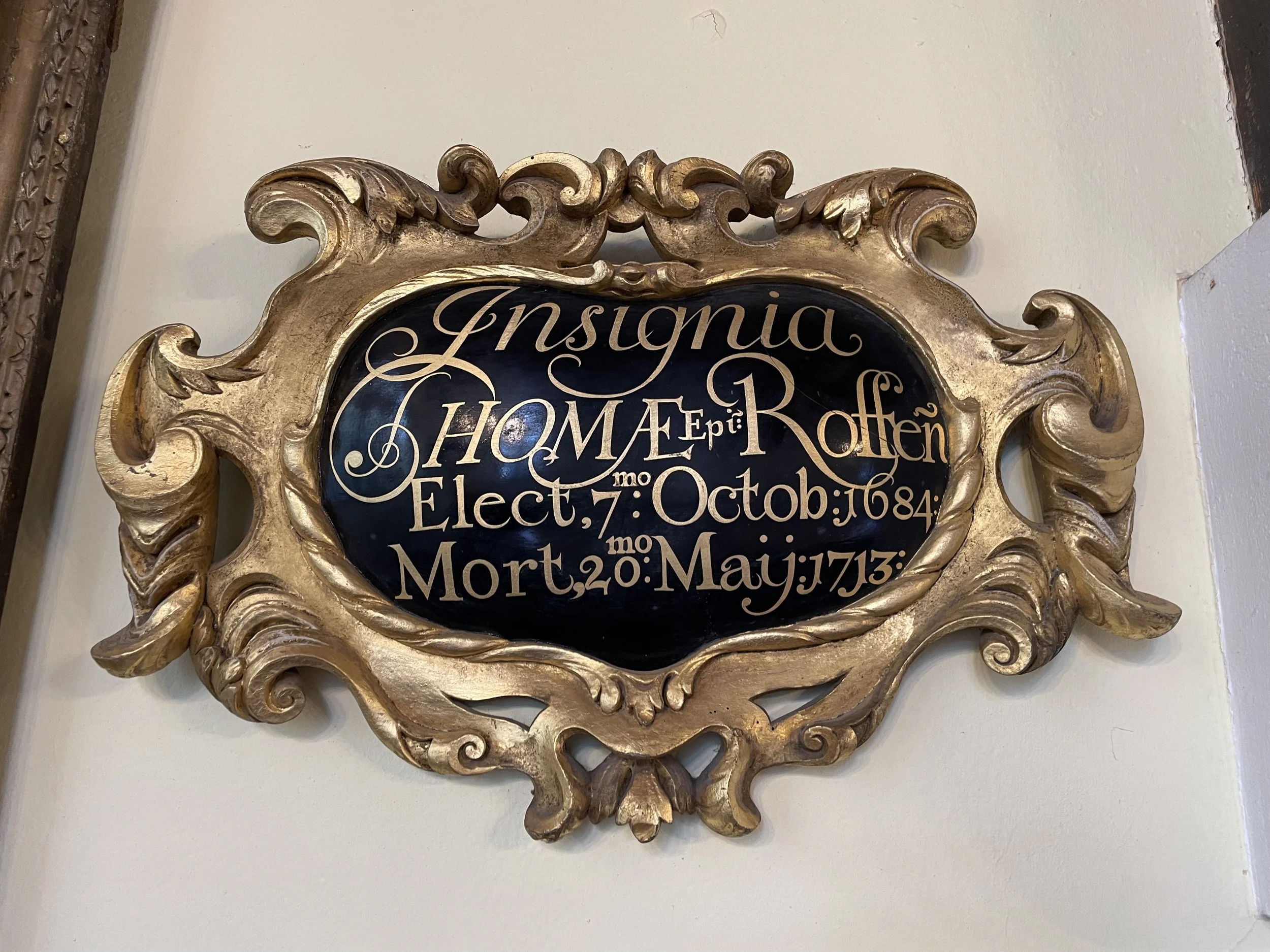Thomas Sprat, Bishop of Rochester 1684-1713
/Barney Milligan of the Beaminster Society provides a further angle on Bishop Thomas Sprat. Featured in The Friends of Rochester Cathedral Report for 2005-2006.
An article on Bishop Thomas Sprat by contributor David Cleggett featured in the Friends’ Annual Report for 2003-2004 . A further angle on this 18th-century cleric is now provided by Barney Milligan of the Beaminster Society.
Read David Cleggett’s previous article on Bishop Spratt:
Thomas Sprat, Bishop of Rochester 1684-1713
David A. H. Cleggett provides a brief biography of Bishop Thomas Sprat, fellow and author of History of the Royal Society.
Authorities differ about the origins of Thomas Spratt - sometimes spelled Sprat - whether he was born in Beaminster (Dictionary of National Biography) or Tallaton in Devon (Dr Samuel lohnson). What is not in doubt, however, is that he was baptised in St Mary's Church, Beaminster, on 20 September 1635, whose parish register for that date reads "Thomas, son of Thomas Spratt, clerke".
Spratt himself declared that he received the first rudiments of his education at "a little school at the churchyard side" - almost certainly the Beaminster Free School that Frances Tucker endowed later.
There are few sons or daughters of Beaminster who have played such an active part in some of the most turbulent times of modern English history. Spratt lived his life as an academic, a poet and a senior cleric, first during the period of the Commonwealth or Protectorate under Oliver Cromwell; and then at the Restoration under the Stuarts; and on to what has come to be known as the Glorious Revolution, which brought William and Mary to the throne in 1688.
Spratt's "little school" in Beaminster must have served him well, for only sixteen years after his baptism, and presumably in his teens, he gained entrance to Wadham College, Oxford, and after three years as a commoner he gained his degree, followed by a fellowship in 1657. These were years when he became known chiefly as poet, versifier and wit. His subjects were mostly personal and sometimes satirical: in 1659 he contributed to a volume praising the gifts and character of Oliver Cromwell at the time of the latter's death. His contribution is described in Hine's History of Beaminster as "turgid", but Dr Johnson considered it was the subject rather than the style that made it so dull. John Dryden and Edmund Waller also contributed to this work which, surprisingly, was republished in 1682, when the monarchy had been restored, under the strange title "To the happy memory of the late Usurper"!
It was the Master of Wadham, Dr John Wilkins, who probably had more influence on Spratt than any of the poets. Wilkins had been appointed by Cromwell and he clearly came to have a high opinion of Spratt, who responded very positively and dedicated some of his verses to Wilkins with graceful, if sycophantic, tributes.
A portrait of Bishop Thomas Spratt and insignia in the Cathedral collections.
More importantly Wilkins, himself no mean scholar and indeed a pioneer of aerial navigation, had gathered around him a group of distinguished scholars - scientists, medical men, philosophers, astronomers, architects (such as Christopher Wren) and others - who met regularly at Wadham to share their ideas. It was this group, Spratt among them, which evolved at the collapse of the Protectorate in 1660 into the Royal Society of London for Improving Natural Knowledge (now known as the Royal Society). Spratt had the distinction of becoming a Fellow of the Society. When a history of the fledgling society was proposed it was Spratt who was invited to write it, and his "History of the Royal Society" is the achievement by which he is probably best remembered.
By this time Charles II was on the throne. Wilkins, who had been appointed by Cromwell, and Spratt, who owed his place to the patronage of Wilkins, had to face a new scene and power structure. They seemed to have adapted well, for unlike some others in academia they did not fare too badly. Spratt had by this time taken holy orders and was appointed, through the good offices of his friend, the poet Abraham Cowley, to be chaplain to the Duke of Buckingham.
This must have been an abrupt change of life for Spratt, the man who had praised Cromwell in published verse and must thus have been under grave suspicion by the authorities, because Buckingham was a member of a group known as the "cabal", which were keen supporters of the Stuarts.
In his famous poem "Absolom and Achitophel" Dryden had a lot of fun satirising just about everyone involved on either side at the time of the Monmouth Rebellion - an attempt to remove, as successor to Charles II, James, the King's brother, who was a Catholic, and replace him with Monmouth, Charles's illegitimate son, who was a Protestant. Buckingham, Sprat's new master, although he was on the Stuart side, which Dryden supported, did not escape the poet's biting tongue. In the poem he appears, alongside other biblical characters, as Zimri:
A man so various that he seem'd to be
Not one, but all mankind's epitome.
Stiff in opinions, always in the wrong;
Was everything by starts, and nothing long:
But, in the course of one revolving moon,
Was chemist, fiddler, statesman, and buffoon.
Buckingham would probably fit neatly into the soundbite about the Royalists in 1066 & All That - romantic but wrong.
Despite all this, Spratt seems to have entered the post-Restoration scene with some relish. And his talents shone. In 1663 he delivered a sermon at St Marv's Oxford (the diarist John Evelyn declared that Spratt's sermons were "full of matter, readily expressed" and admired the way "he never once made use of notes") and then, the very next day, he gave the special speech of welcome before the King and Queen when they paid an official visit to Wadham.
It is not surprising, therefore, that before long the new powers appointed him to other offices: a prebend at Westminster Abbey in 1669; a living in Lincolnshire in 1670 (though there is no evidence that he lived there); and a royal chaplaincy in 1676. The meteoric rise continued unabated. In 1679 he became curate at St Margaret's, Westminster; in 1681 he collected a canonry at Windsor; and two years later he was appointed dean of Westminster. The stipend at the deanery was felt by Spratt to be insufficient "to maintain any tolerable reputation or even to avoid contempt, but despite his protestations he had to give up one or two of his earlier offices and stipends.
When Spratt was appointed Bishop of Rochester in 1684, he was permitted by royal dispensation to retain his deanery at Westminster, as it was recognised that the diocese of Rochester was hard-pressed financially. Doubtless it was these machinations that caused the Archbishop of Canterbury's jibe that Spratt's chief concern was with his income. But it is worth recording, to be fair, that pluralities were common at that time, and Spratt was not the only Bishop of Rochester to combine the office with that of the deanery of Westminster. So it was that Spratt became a senior bishop with considerable influence in the land.
As the invasion of William of Orange drew nearer, Spratt found himself in the midst of a highly complex situation, not only because of his place in the hierarchy but also because Rochester was just across the channel from France.
Pressure grew on the then King, James II, to abdicate and he eventually accepted his fate. He tried to flee to France in a skiff that had been moored at the end of a garden in Spratt's Rochester. It was only a few yards from the place where his brother Charles had been rapturously welcomed 28 years earlier. But that was before Sprat's time!
William of Orange had already landed at Torbay on 5 November 1688 and made rapid progress to London and before long he was crowned in Westminster Abbey. It was Dean Spratt - the lad from Beaminster - who brought the crowns for the new King and Queen and administered the chalice.
It was also Spratt who, when William died in 1702, read the service for the Coronation of Queen Anne.
As we have seen, serving in public life in England at that time was a bumpy ride, but it appears that Spratt coped well. True, some of his views were contentious and disapproved of by the authorities, and he was accused of involvement in a plot and was actually under house arrest for a few days, but the poet who had lauded Cromwell and later became an ardent Royalist and defender of the Divine Right of Kings under the Restoration, before espousing Protestantism under William of Orange, managed to keep his neck intact. An Episcopal Vicar of Bray? Maybe. But he might rebut this by claiming a consistent, if malleable, theology of church/state relations and freedom from domination by Rome.
The eventful life of Spratt certainly adds a great deal of colour to the history of our little town of Beaminster.
Barney Milligan
Beaminster Society
Reillustrated by Jacob Scott, Heritage Officer
Postscript
Could Spratt have had a sense of humour? When he chose an heraldic crest on his appointment to Rochester, three fishes form its centrepiece. Was this because of the loaves and fishes in the gospel? Or was it because Rochester was beside the sea? Or could it have been something to do with sprats catching mackerels?
(The writer would like to acknowledge the help given by the Archivist of Wadham College, Oxford, the Cathedral office, Rochester, and John Arnold, former Dean of Rochester.)






